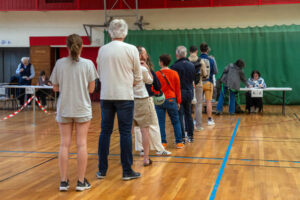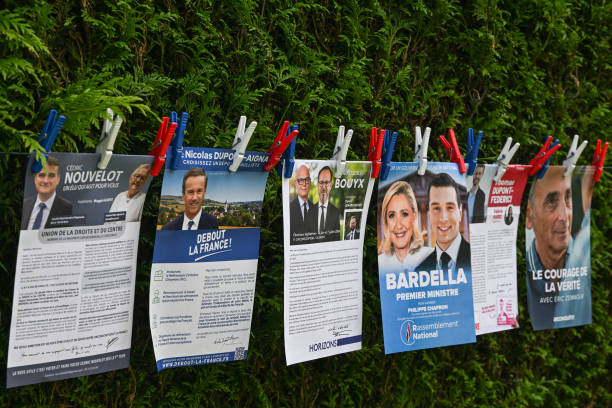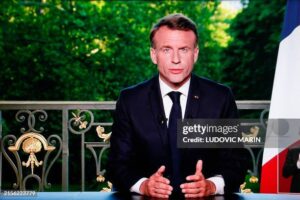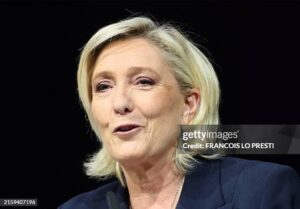France Election 2024: An Overview
What’s new in the realm of France elections? The political landscape of France is always dynamic, filled with twists and turns that keep citizens and observers on their toes. As the latest election results unfold, the atmosphere is charged with anticipation and speculation. This article will provide a comprehensive overview, from historical context to the latest developments, offering insights into the current political climate, key candidates, major issues, and potential outcomes. |
Overview of France’s Elections

The French electoral system is a fascinating blend of tradition and modernity. Understanding its historical context and evolution is crucial to grasp the significance of the latest developments.
Historical Context
France’s electoral system has undergone significant changes over the years. From the establishment of the Fifth Republic in 1958 to the present day, the system has evolved to reflect the country’s democratic values and political dynamics.
Evolution of the Electoral System
The Fifth Republic brought a major shift in France’s political landscape, introducing a semi-presidential system combining parliamentary and presidential systems elements

The president is elected by direct universal suffrage, while the National Assembly members are elected through a two-round system.
Key Historical Elections
Several elections stand out in France’s history, each marking a turning point in the nation’s political journey. These elections have shaped the current political landscape from Charles de Gaulle’s presidency to Emmanuel Macron’s unexpected rise to power.

Current Political Climate in France
The current political climate in France is characterized by a vibrant and often contentious interplay between various political parties. Each party brings its unique perspective and policies, vying for the support of the French electorate. |
Major Political Parties
The landscape is dominated by a few key players, each with its own ideology and voter base.
La République En Marche
Founded by Emmanuel Macron in 2016, this centrist party has rapidly gained prominence. It advocates for progressive social policies and pro-European Union stances, appealing to a wide range of voters.
The Republicans
As the main centre-right party, The Republicans emphasize traditional values, economic liberalism, and a strong national identity. They have a significant base among conservative voters.
Socialist Party
Historically one of the two main parties, the Socialist Party has faced challenges in recent years but remains influential. It advocates for social justice, workers’ rights, and welfare state policies. |
National Rally
Formerly known as the National Front, this far-right party, led by Marine Le Pen, focuses on nationalism, anti-immigration policies, and Euroscepticism. It has a dedicated and growing base. |
Other Influential Parties
Apart from these major players, several other parties and movements contribute to the vibrant political scene, including the Greens, the Communist Party, and various regional parties.
The Latest Developments in France Elections
France’s legislative election results have left the political landscape fragmented, leading to economic uncertainty. The second round of the elections prevented the rise of the far-right, but no party secured an absolute majority, which left the country in a politically unstable situation. The left-wing New Popular Front’s unexpected victory, securing the most seats at 182, has shifted the balance of the National Assembly towards the left. Jean-Luc Mélenchon, the leader of the New Popular Front, is demanding a mandate from President Emmanuel Macron to form a new government. However, Macron has asked his current Prime Minister, Gabriel Attal, to remain temporarily to ensure stability
The Emergence of the New Popular Front: A Radical Shift in French Politics
In a stunning turn of events, the New Popular Front (NFP), an alliance of four left-green factions, emerged victorious in the recent French parliamentary elections. The coalition secured 182 seats in the 577-seat National Assembly, creating a complex tripartite division with no clear majority. This unexpected triumph has raised questions about the alliance’s composition, its policy agenda, and the sustainability of its internal cohesion.
Constituent Parties of the NFP

The dominant force within the NFP is France Unbowed (LFI), spearheaded by the fervent leftist Jean-Luc Mélenchon. Established in 2016, LFI is characterized by its radical leftist and populist ideologies, rejecting traditional political structures.
Next in line is the Socialist Party (PS), historically the primary entity of the French left, known for its social democratic and pro-European stances. Despite its significant influence in past decades, it garnered less than 2% in the 2022 presidential elections.
The French Green Party (LE-EELV), originating in 1984, has participated in government coalitions twice, advocating for environmental policies.
Lastly, the French Communist Party (PCF), once a leading force in postwar French politics, remains committed to overcoming capitalism, albeit with a pragmatic approach.
Policy Proposals of the NFP
The NFP’s platform is heavily influenced by LFI’s radical leftist ideology, proposing substantial increases in public spending. Key pledges include reversing pension reforms, raising public sector wages, linking salaries to inflation, and enhancing housing and youth benefits. The coalition also plans to introduce a wealth tax, elevate the minimum wage, fund childcare, cap essential commodity prices, and legislate for carbon neutrality by 2050.
In foreign policy, the NFP advocates for a ceasefire in Gaza, recognition of Palestine, continued support for Ukraine against Russian aggression, and a staunch defence of Ukrainian sovereignty.
Reasons for the NFP’s Success
The NFP’s formation was a rapid response to President Macron’s decision to dissolve parliament following his camp’s poor performance in the European elections. The alliance capitalized on the “republican front” strategy to block the far-right National Rally (RN), which had won the first round. By withdrawing third-placed candidates and gaining centrist support, the NFP consolidated the anti-RN vote, significantly boosting its chances.
Challenges to Unity
The NFP’s predecessor, Nupes, disintegrated due to personality clashes and policy disagreements, particularly concerning Ukraine, Gaza, and the EU. Mélenchon’s assertive nature and radical positions have been divisive, causing friction within the alliance. Despite promises to step back, his continued demands for a dominant role have exacerbated tensions.
Accusations of antisemitism against Mélenchon and his abrasive tactics have further alienated members. Notably, LFI defectors and other NFP factions view him as an obstacle to unity and progress.
Prospects for Cohesion
Despite LFI being the largest faction within the NFP, the combined strength of the PS, Greens, and Communists could counterbalance Mélenchon’s influence. Prominent NFP figures like Raphaël Glucksmann advocate for a more cooperative approach, emphasizing dialogue and compromise to reform French political culture.

Leading NFP figures are working towards nominating a prime ministerial candidate who embodies unity and can navigate the coalition’s internal divisions. The success of the NFP will hinge on its ability to find common ground and present a unified front.
In conclusion, the New Popular Front’s rise marks a significant shift in French politics, driven by an alliance of diverse left-wing factions. While its radical agenda and internal discord pose challenges, the NFP’s ability to adapt and collaborate will determine its future impact on France’s political landscape.
If initial projections are confirmed, President Macron might have to appoint a prime minister from the New Popular Front (NFP) due to their unexpected success in the recent election. Here are some potential candidates:
Jean-Luc Mélenchon:
Age: 72
Background: A long-standing figure in French left-wing politics, Mélenchon has held ministerial posts in previous governments when he was part of the Socialist Party. Known for his fiery rhetoric, he is one of the most polarizing figures in French politics. His relationship with President Macron is notably contentious, making his potential appointment as prime minister complex.
Marine Tondelier:
Background: Tondelier grew up in Henin-Beaumont, a town known for its support of the far-right National Rally (RN) and its leader, Marine Le Pen. Elected as an opposition member of the town’s municipal council in 2014, Tondelier documented her experiences in a 2017 book, highlighting the oppressive atmosphere under the RN administration. Her background in grassroots politics and opposition to the far-right could make her a notable candidate.
Raphael Glucksmann:
Background: Glucksmann led the Socialist list in the recent European elections, securing nearly 14% of the vote, which was just behind Macron’s Together group. This performance was seen as a sign of revival for the Socialist Party, which had struggled in recent years. His success and visibility in the European elections position him as a strong contender.
Laurent Berger:

Age: 55
Background: The former head of the moderate CFDT, one of France’s main trade unions, Berger has a history of strong opposition to the RN. While he has expressed reluctance to become prime minister, others on the left have suggested him as a potential unifying figure and a popular alternative to Mélenchon. His moderate stance and labour background could appeal to a broad base within the NFP.
Each of these candidates brings different strengths and challenges, reflecting the diverse coalition within the NFP. Their ability to work with President Macron and navigate the complexities of the current political landscape will be crucial in determining who might be appointed as the next prime minister.
Some excerpts from PM Attal’s resignation speech
“Since the beginning of this campaign, I have alerted against three risks: the one of an absolute majority of the [left-wing] France Insoumise party, the risk of an absolute majority of the National Rally, [and] the risk of the disappearance of the movement that embodies our values and principle,” said outgoing French Prime Minister Gabriel Attal.
“Those three risks have been completely marginalised by the French people.”
“Tonight there is no absolute majority that will be led by the far right. I believe in this French spirit that is deeply rooted and committed to the spirit of the republic.”
“Being the prime minister was the honour of my life”.
A total of 289 seats are needed in the National Assembly for a majority
And based on the exit poll projections, no alliance or party looks anywhere near that. So we’re likely to have some form of coalition government, and the New Popular Front (NFP) is attempting to position itself to lead it based on the projected results.
President Macron called these surprise snap elections because he said they would provide France with “clarification”. But the country looks even further away from that now.
Euro falls after French exit poll
The euro fell after exit polls for the final round of the French parliamentary elections pointed to a hung parliament, with the left-wing New Popular Front grouping likely winning the most seats.
Europe’s single currency was last down 0.2 per cent at $1.081.
“While the initial French election results still raise many questions, financial markets are likely to greet the vote with some relief,” Jan von Gerich, Nordea’s chief market Analyst, told Reuters.
“That said, the economic programme of the left is in many ways much more problematic than that of the right, and while the left will not be able to govern on their own, the outlook for French public finances deteriorates further with these results,” Gerich said.
Sources
[theglobaltreasurer.com – Divided French Parliament Sends Ripples Through …](https://www.theglobaltreasurer.com/2024/07/09/divided-french-parliament-sends-ripples-through-global-markets/)
[euronews.com – French Elections: Political and fiscal risks persist, warn …](https://www.euronews.com/business/2024/07/09/french-elections-political-and-fiscal-risks-persist-warn-experts
https://www.aljazeera.com/news/liveblog/2024/7/7/france-legislative-election-2024-live-country-holds-breath-for-election-results
(https://www.theglobaltreasurer.com/2024/07/09/divided-french-parliament-sends-ripples-through-global-markets/)] [[2](https://www.euronews.com/business/2024/07/09/french-elections-political-and-fiscal-risks-persist-warn-experts)] [[4](https://www.aljazeera.com/news/2024/7/8/french-election-results-no-party-secured-a-majority-so-whats-next)].
If you enjoyed this article, please like and share it with your friends, and don’t forget to subscribe for more great content!